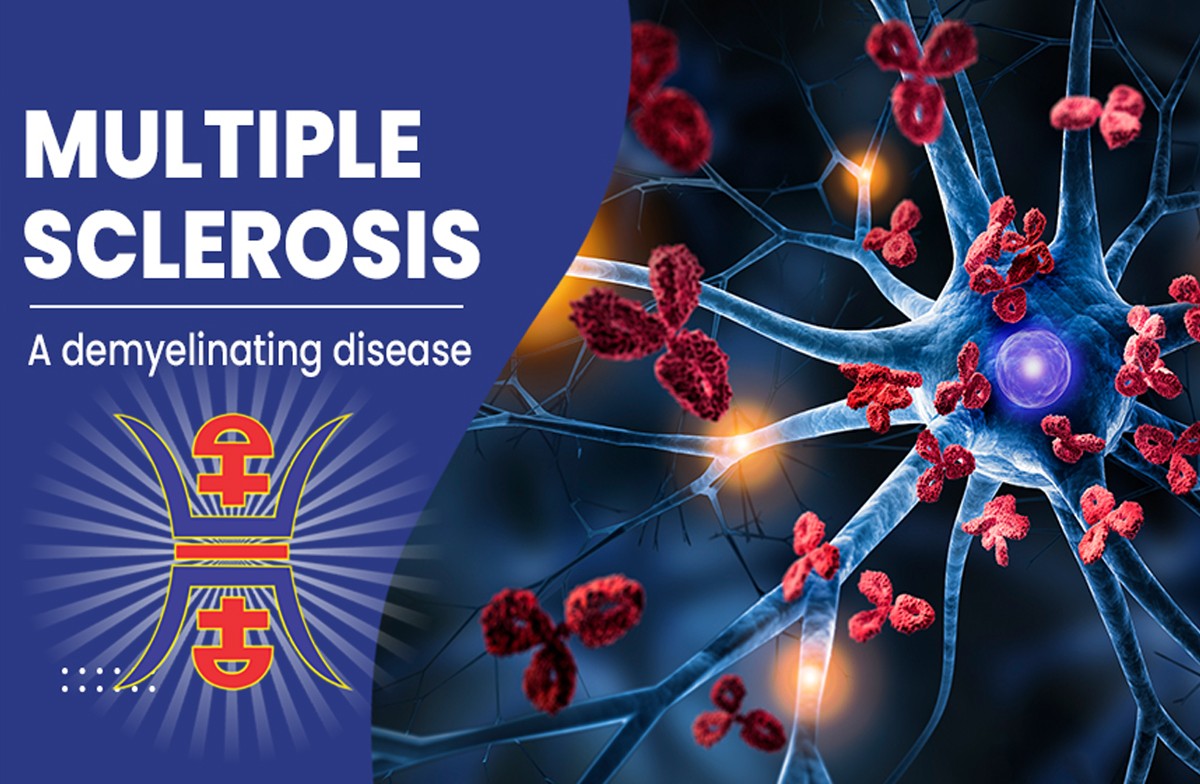Multiple Sclerosis
MS stands for multiple sclerosis, which is a chronic autoimmune disorder that affects the central nervous system. In MS, the immune system mistakenly attacks the protective covering of nerve fibers, called myelin, which can lead to a range of symptoms, including muscle weakness, numbness or tingling, difficulty with coordination and balance, vision problems, and cognitive impairment.
The exact cause of MS is not fully understood, but it is believed to be a combination of genetic and environmental factors. Women are more likely than men to develop MS, and the disorder is most commonly diagnosed in individuals between the ages of 20 and 40.
There is currently no cure for MS, but a range of treatments are available to help manage symptoms and slow the progression of the disease. These may include medications to reduce inflammation and immune system activity, physical therapy to improve mobility and strength, and cognitive therapy to manage cognitive symptoms.
Research is ongoing to better understand the underlying mechanisms of MS and to develop new treatments that may one day lead to a cure.
In natural health, MS is believed to be caused by a combination of factors, including external pathogens, internal imbalances, and emotional stress.
Natural health theory suggests that MS is related to a disruption in the flow of Qi, the body's vital energy, which can lead to an imbalance in the body's organ systems. This imbalance can create an environment where internal dampness, phlegm, or other toxins accumulate, leading to inflammation, damage to the nervous system, and the development of MS symptoms.
Factors that may contribute to MS in natural health include:
- Environmental factors: Environmental factors such as cold, damp weather, exposure to toxins or infections, and living in areas with high pollution levels may be considered as external causes of MS in natural health.
- Emotional stress: Emotions such as anger, frustration, and worry are believed to disrupt the flow of Qi in the body and can contribute to the development or worsening of MS symptoms.
- Poor diet: Consuming an excessive amount of greasy or processed foods, as well as dairy products, is believed to create internal dampness in the body, which can contribute to MS.
The natural health syndrome of MS is related to the liver and kidney meridians and an imbalance in the body's immune system. This imbalance can lead to the body attacking its own nervous system, causing symptoms such as numbness, tingling, muscle weakness, and problems with coordination and balance.
There are several natural health syndromes that may be associated with MS. These include:
- Liver and kidney yin deficiency: This syndrome is characterized by symptoms such as fatigue, dry eyes, dizziness, tinnitus, and blurred vision.
- Liver and kidney deficiency with phlegm: This syndrome is characterized by symptoms such as tremors, muscle weakness, numbness, and a feeling of heaviness in the limbs.
- Liver wind: This syndrome is characterized by symptoms such as tremors, twitching, spasms, and involuntary movements.
Natural health treatment for MS typically focuses on addressing the underlying imbalances in the body and promoting overall health and wellbeing. Here are some commonly used natural health treatments for MS:
- Acupuncture: Acupuncture involves inserting thin needles into specific points on the body to stimulate the flow of Qi and promote healing. Acupuncture has been shown to be effective in managing symptoms of MS, such as pain and muscle weakness.
- Herbal remedies: Natural health practitioners may recommend various herbal remedies to help manage MS symptoms, including herbs that promote circulation and improve the function of the nervous system.
- Dietary therapy: Natural health practitioners may recommend dietary changes, such as avoiding dairy products and greasy or processed foods, and consuming foods that are believed to promote healthy Qi flow in the body.
- Lifestyle modifications: Natural health practitioners may recommend lifestyle modifications to help manage stress, such as practicing tai chi or qigong, getting enough sleep, and reducing exposure to environmental toxins.
In Person With Heshoutang Natural Health Members
With Heshoutang Natural Health Online Members
Fill Out the Questionnaire by yourself
Foods & Drinks which are good for MS
In natural health, MS is believed to be related to imbalances in the body's organ systems, which can be influenced by diet and lifestyle. Here are some dietary recommendations that may be helpful for individuals with MS according to natural health:
- Foods that promote Qi flow: MS is believed to be related to a disruption in the flow of Qi, the body's vital energy. Foods that promote Qi flow in the body include whole grains, legumes, leafy green vegetables, and fresh fruits.
- Foods that nourish the liver and kidneys: The liver and kidneys are important organs in natural health, and their health is thought to be related to the development of MS. Foods that nourish the liver and kidneys include lean protein, such as chicken, fish, and tofu, as well as root vegetables, such as carrots and sweet potatoes.
- Foods that reduce dampness: Dampness in the body is believed to contribute to the development of MS symptoms. Foods that help to reduce dampness include ginger, garlic, and onions, as well as warming herbs and spices, such as cinnamon and black pepper.
- Herbal teas: Herbal teas can be a helpful addition to a natural health diet for MS. Teas made from herbs such as astragalus, ginseng, and licorice root may help to boost the immune system and promote overall health.
- Plenty of water: Drinking plenty of water is important for individuals with MS, as it can help to flush toxins from the body and promote healthy Qi flow.
It's important to note that dietary recommendations should be tailored to each individual's specific needs and should be made under the guidance of a qualified natural health practitioner.
When you subscribe to the blog, we will send you an e-mail when there are new updates on the site so you wouldn't miss them.














Comments